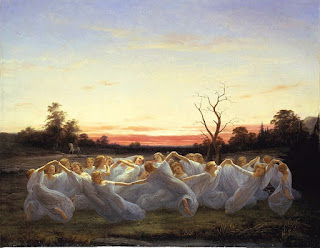Ghosts of Cultural Heritage
Do you usually associate wrecked cottages and deserted villages with lost, mislaid, and abandoned property and/or with the abuse of people and/or environments?
Do you usually associate coastal cottages and coastal villages with maritime laws of salvage?
What do you know about ghost populations, ghost lineages, ghost towns, ghost trains and phantom vehicles?
Perhaps you have a fascination with ghosts, ghost-lore, witches and abandoned property.Do you have a fascination with a heritage of culture and kindness?
Do you usually associate dilapidated cottages with ghost towns, derelict dwellings, abandoned buildings and the ruins of former human settlements?
The published notes about important discussions conducted from the sitting room of Frugality Cottage are composed, compiled and regularly edited and updated by various virtual volunteers, ghostwriters and ghost-editing ethereal assistants.
Perhaps you believe this grimoire has been compiled in that location, or in a fairy meadow or elf-filled paddock or on a mysterious ship.Beliefs in ghosts are widespread.
Beliefs about haunted locations are widespread.
There are many beliefs about vengeful ghosts.
What has history taught you about beliefs concerning the natural, the supernatural, the pseudoscientific, the paranormal, preternatural, the superstitious, the ideological, and the objective?
What is your acquaintance with the ghost of Banquo?What do you belief about ghosts within an underworld?
What do you know about processions of the dead?
What do you know about ghosts in ancient Mesopotamian religions?
What do you know about ancient Egyptian beliefs about souls?
How do you account for beliefs about incorporeality?
Why is belief in ghosts so common in the English-speaking world, and in Spanish-speaking cultures?Are you afraid of ghosts?
Have you ever followed a Wild Hunt?
How do you prefer to interact with nature, and where?
How has your imagination been influenced by ghost stories and films with ghosts at various times of your life, and why?
How can you prove you are consistently benevolent?
How do you tell the difference between security-related vagueness, artistic ambiguity, unintentional obfuscation and deliberate deception?
How do you tell the difference between informational clarity and the over-simplification within much semi-plausible misinformation?How do you know your approach towards philanthropy is not wasteful?
Confirmation biases are often manipulated by evil, greedy people to encourage gullible individuals to believe that well-informed, kind people are involved in an evil conspiracy.
What has history taught you about why people so often fail to overcome their confirmation biases, and how that failure is exploited by evil people?
If you are feeling too powerless or ignorant to be involved in making the world a much better place than it would be without you, that indicates you have not spent much time at all in acquainting yourself with the Adelaidezone Digital Arts Quarter over the past decade or so.
Most people make the mistake of believing their own interpretations of situations are
accurate because they prefer to associate with people who perceive
situations similarly to themselves. That is very stupid of them, of
course. Perceptions can only be proved accurate when all relevant
evidence is assessed without bias.
You may be aware that all real evidence is good evidence. It may not provide all the required facts with which to assess a situation accurately but it is a very good starting point. Indeed, it is the only legitimate starting point when seeking the truth.
How have you been attempting to use your leadership abilities for good in the world, whether recently or earlier in time?
Where do you believe your true talents currently reside, and why?
Where have you travelled and why have you done so?
How do you know you are not a miser?Is English your first language?
Do you know several languages?
Do you have pets?
Are you a child?
Has anyone ever considered you to be a pet?
Has anyone ever considered you to be a pest?Pretending to improve the world while doing nothing of the sort is both delusional and deceptive.
Much greed is obviously selfish though some greed is motivated by other intentions, most of which are delusional.Selfishness itself is often associated with unconscious motives.
If you are a bully, please stop.
If you are not a bully at all, please stop bullying, too.
Please stop governments from encouraging and rewarding bullying.
Please stop governments from being run by bullies, appointing bullies to positions of power and allowing bullies to steal public funds.
Are you aware that financial systems, and other socially-developed systems of greed, are mostly a consequence of unhealthy imaginations?Unhealthy imaginations cause many problems in the world.
How do you know whether your imagination is healthy or not?
What are the main features of a healthy imagination, from your point of view?
Does the phrase "Pape Satàn, pape Satàn aleppe!" mean anything to you?
Occupational burnout has long been evident in many workplaces.
Emotional exhaustion is evident in many community organisations and professions.
How do you identify the ghosts of particular locations?Non-corrupt societal systems can work well in parallel to one another, with simple and straightforward interactions whenever necessary.
Corrupt societal systems tend to be entangled with one another and cause chaos and despair.
How does your social research take history into account?
Extremists will always have reasonable opponents.
Reasonable reformers only have unreasonable opponents.
What do you regard as your way of life at present?
How may that way of life change over the months ahead of you?
If you enjoy your current way of life, how will you prevent it from changing?
How have you documented the changes in your way of life over various years and decades?





















Comments
Post a Comment